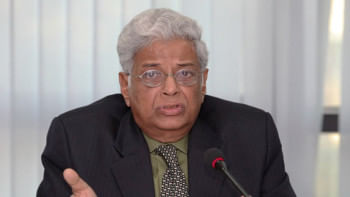CJ's comments
We welcome the very insightful comments of the Hon'ble Chief Justice made at a book launching ceremony on Saturday. No one can take issue with the CJ when he suggests that laws formulated at the end of the 19th Century are practically obsolescent in the 21st Century. The question is how do we go about making the existing laws conform to the present and legislate appropriate new laws?
There is the national parliament whose primary job it is to enact laws. Reportedly, the Jatiya Sangsad has enacted more than a thousand laws since independence, but regrettably, as the CJ had pointed out, very few of those were treated with due diligence during formulation. When the parliament devotes on the average, only six percent of its time to pass a bill, as per a study of TIB on the 10th parliament, it cannot be otherwise. And when one considers that for a greater part of the Sangsad's term since 1991, the opposition was absent from the parliament, laws enacted are bound to suffer from various lacunae.
Then there is the Law Commission, whose job precisely is to recommend enactment of new, or annulment or modification of existing, laws. As we understand, the Commission in the last 20 years has forwarded 141 reports to the government, of which more than 100 were proposals for enactment of new or, annulment or modification of, existing laws, and less than 20 of those were implemented by the government. We wonder why the others were not considered. After all, the Commission sends recommendations following long deliberations that include eliciting public opinion on a proposed recommendation.
We think the CJ's remarks have plenty of substance and the government will do well to treat those seriously to invest the country's legal system with dynamism.

 For all latest news, follow The Daily Star's Google News channel.
For all latest news, follow The Daily Star's Google News channel. 








Comments